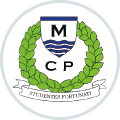Social and emotional development
A child's social and emotional development is just as important as their academic development. At Maylandsea we ensure that:
Pupils are confident, self-assured learners whose excellent attitudes have a strong, positive impact on their life at school.
Pupils discuss and debate issues in a considered way, showing respect for others' ideas and points of view.
They understand how their education equips them with the behaviours and attitudes necessary for success in their next stage of education and for their adult life.
Pupils value their time at school and are not disadvantaged by poor attendance.
Pupils' impeccable conduct reflects our strategies to promote high standards of behaviour.
Pupils are self-disciplined and low-level disruption is extremely rare.
Pupils work hard with the school to prevent all forms of bullying, including online bullying and prejudice-based bullying.
Staff and pupils deal effectively with the very rare instances of bullying behaviour and/or use of derogatory or aggressive language.
The school's open culture actively promotes all aspects of pupils' welfare. Pupils are safe and feel safe at all times. They understand how to keep themselves and others safe in different situations and settings. They trust staff to take rapid and appropriate action to resolve any concerns they have.
Pupils can explain accurately and confidently how to keep themselves healthy. They make informed choices about healthy eating, fitness and their emotional and mental well-being. They have an age-appropriate understanding of healthy relationships and are confident in staying safe from abuse and exploitation.
Pupils have an excellent understanding of how to stay safe online and of the dangers of inappropriate use of mobile technology and social networking sites.
Pupils' spiritual, moral, social and cultural development equips them to be thoughtful, caring and active citizens in school and in wider society.
We achieve these outcomes by:
- Promoting our school values in lessons, including PSHE lessons, and in assemblies
- Ensuring that staff are highly responsive to pupils' needs, hopes and wishes
- Listening to and working closely with families where there are vulnerabilities
- Careful use of additional funding, particularly to support disadvantaged pupils and pupils with special educational needs
- Using social stories, circle of friends and other social and emotional interventions
- Ensuring that our PSHE (personal, social and health education) curriculum prioritises opportunities for personal development, understanding of diversities, bullying, health and relationships education
- Employing a Family support worker to support children and families to provide mentoring support and emotional interventions, including play therapy
